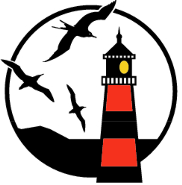Great that you decided to study linguistics with us! Here’s some information on the module and the the first sessions.
This is the module “Introduction to English Linguistics”. The module consists of a lecture (by Prof. Ferdinand von Mengden, Mondays at four o’clock, compulsory for everyone) and a seminar (seven courses to choose from, with identical content and a common exam). This blog is for the seminars.
Seminar description
Linguistics is the scientific study of language. The aims of linguistics are to understand human communication, cognition and psychology and the evolution of languages as communication systems. Language is fascinating to study for its own sake, but a knowledge of linguistics is also extremely helpful for a range of other activities, for instance language teaching, translating/interpreting or developing artificial intelligence.
The seminars will introduce you to basic concepts and methods in linguistics. We will study phenomena on various levels of analysis (phonetics and phonology, morphology, syntax), with English as our primary object of investigation and occasional glances at other languages. They will be equipped with the necessary skills and knowledge to read adacemic literature and to carry out linguistic analyses of their own in more advanced modules and pursue further studies in the discipline.
Welcome to university!
If this is your first-ever seminar, you are probably going to experience a whole new degree of freedom—you will be free to choose classes, free to choose research topics, free to decide how much to read, how much to practice, free to decide which debates to follow up on and which to ignore, which texts to re-read and which tools to use.
With freedom comes responsibility. It will be your responsibility to ask about anything you do not know, otherwise we will assume that everything is clear. (Do not hesitate to ask questions, please! We love explaining things. And the others will be glad you asked.) It will be your responsibility to judge whether you really understood a topic or whether you need to go back and revise. It will be your responsibility to see to your own time management, to prepare for class each week, to take useful notes when you read texts—and to decide when to stop. And it will be your responsibility to get in touch with any of us, at any time, if you need help with anything.
Whatever you do: to communicate is better than not to communicate!
Credit points and workload
This seminar is worth 3 ECTS credit points. The accompanying lecture is worth 2 ECTS credit points. One credit point corresponds to an expected workload of 30 hours (course time and preparation/follow-up), so our course is expected to require 90 hours in total, which translates to about six hours per week (including course time) for the seminar plus four hours per week for the lecture. Please consider this when booking courses! Do not take too many classes. A full-time student is expected to earn about 60 credit points per year (30 per semester, on average) and work 1,800 hours in total.
Additional information:
https://www.fu-berlin.de/en/studium/information_a-z/punktemodule.html
Live sessions
All online seminars will take place via WebEx at their allotted times. You are expected to be present regularly and to take an active part in discussions, e.g. by asking questions. Course links will be posted here for each seminar.
General information on Webex and how to use it can be found here: https://fu-berlin.webex.com/webappng/sites/fu-berlin/dashboard?siteurl=fu-berlin.
Homework
You will receive information and complementary video and reading materials as well as weekly homework assignments via email (please make sure you are signed up on Blackboard!) and/or via this blog.
Please check your university e-mail account regularly and contact us immediately in case of any technical problems.
Homework will not be submitted or graded, it will be your own responsibility to ask us about those questions you were not sure about, otherwise we will assume that everything is clear. You are welcome to discuss answers with your fellow students at any time and in any medium. Use the discussion board if you like, we may stop by and leave comments as well.
Examination
There will not be a written final exam this year. Instead, there will be four smaller open-book/internet online exams at roughly regular intervals throughout term (see syllabus).
You are not allowed to discuss these with your fellow students. If we catch you cheating, you will fail the module. Severe cheating may mean that you will not be allowed to continue your studies.
The questions will be published each Friday at noon, to be submitted via Blackboard by noon the following Monday.
The tasks test whether you are able to apply the knowledge from the seminar, the weekly reading and the videos to new problems. You need 60% of the points to pass the module.
Detailed instructions will be made available in due time. There will be a test-run after the first week to make sure everyone knows where they are supposed to be.
Course bibliography
- Bieswanger, Markus. 2017. Introduction to English linguistics (UTB basics). 4th edition. Francke. [Please make sure to use the 4th edition!]
- Herbst, Thomas. 2010. English linguistics: A coursebook for students of English (De Gruyter Mouton textbook). De Gruyter Mouton.
- Kortmann, Bernd. 2004. Linguistik: Essentials: Anglistik, Amerikanistik ; Systemgebrauch, 1st edn (Studium kompakt Anglistik, Amerikanistik). Cornelsen.
- Kortmann, Bernd. 2014. English linguistics: essentials, 1st edn (System use). Cornelsen.
- Mair, Christian. 2012. English Linguistics: An introduction, 2nd edn (bachelor-wissen). Narr Verlag.
- Plag, Ingo. 2009. Introduction to English linguistics, 2nd edn (Mouton textbook). Mouton de Gruyter.
- Roach, Peter. 2005. English phonetics and phonology: A practical course. Cambridge University Press.
- Rogers, Henry. 2005. Writing Systems: A Linguistic Approach. Routledge.
- Stefanowitsch, Anatol. 2019. Phraseology. [unpublished teaching material]
- Stefanowitsch, Anatol. 2020. Text linguistics. [unpublished teaching material]
- Stefanowitsch, Anatol, and Kirsten Middeke. 2019. Syntax. [unpublished teaching material]
 Dear all,
Dear all,